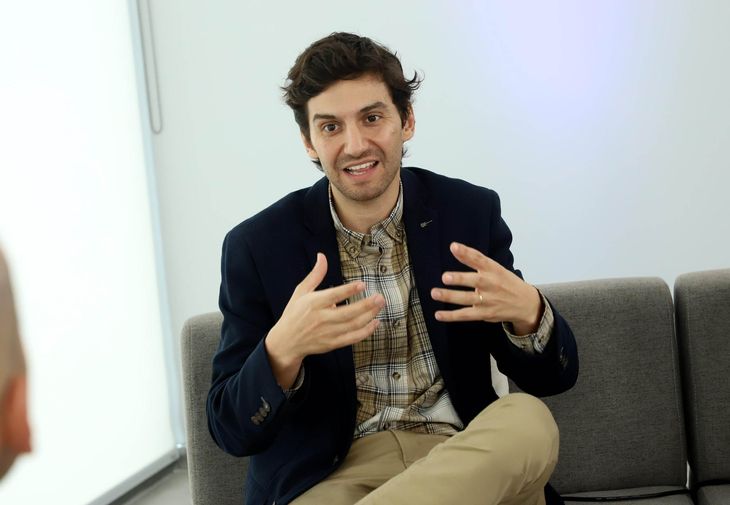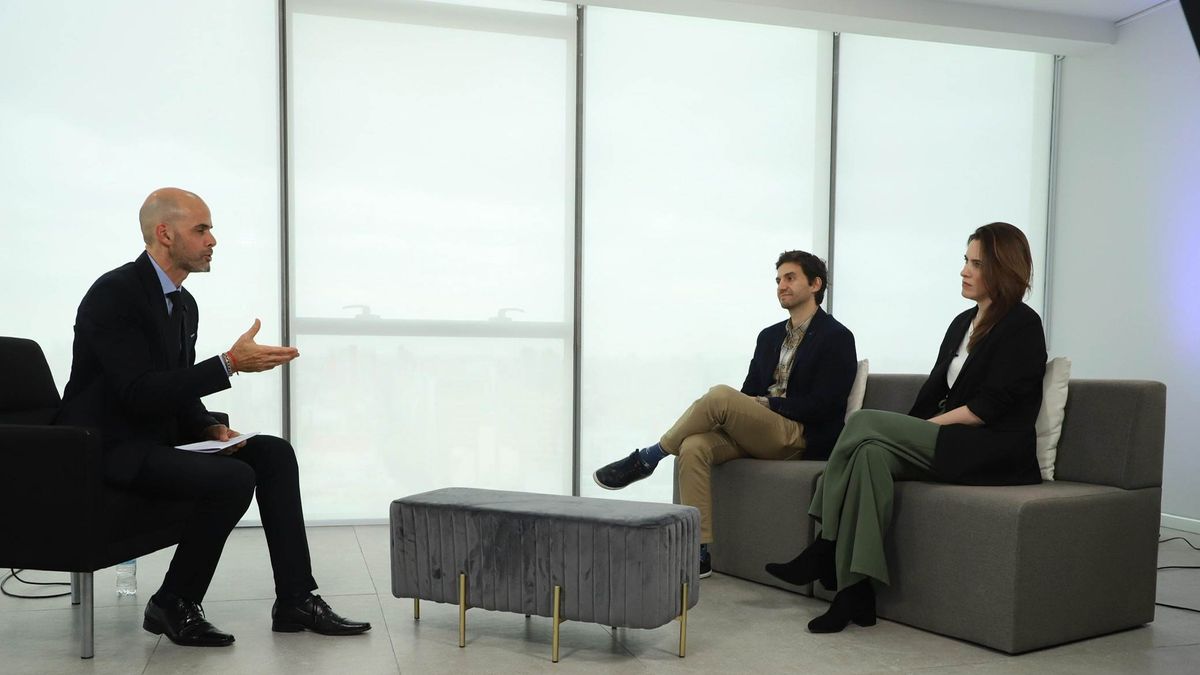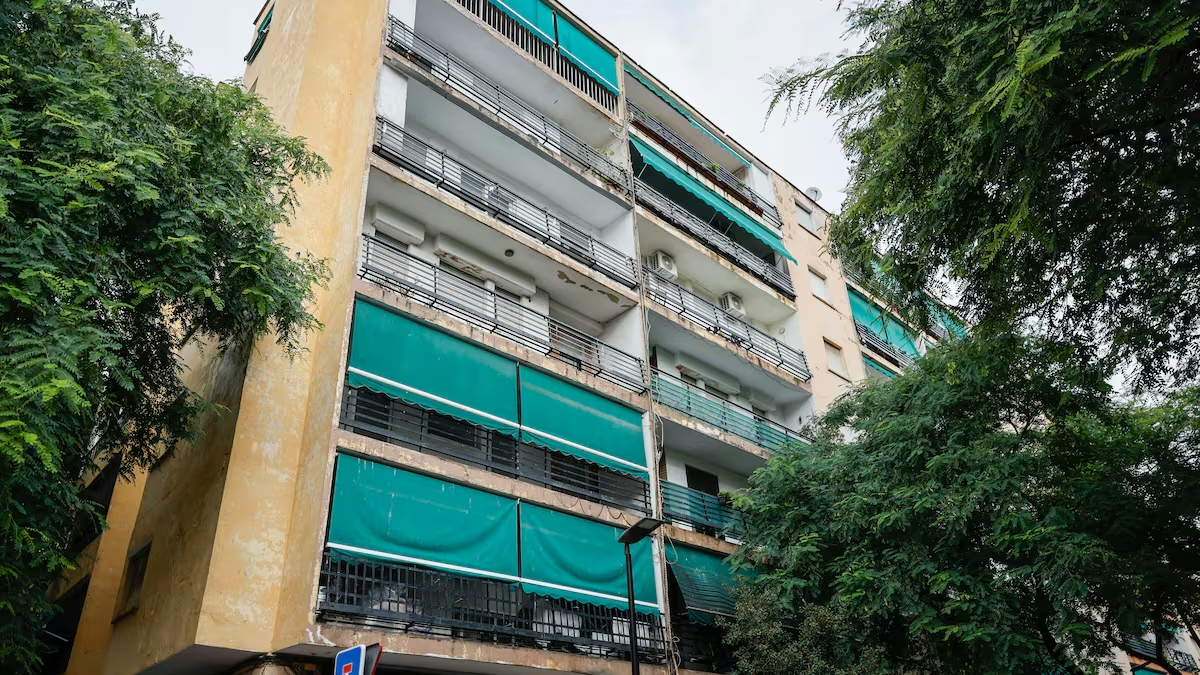“Telecom is a company that is undergoing a very significant evolution process for “transition from being a traditional telecommunications company to being a technology company today, capable of offering an ecosystem of comprehensive digital services to the entertainment customer,” express.
In this regard, he indicated that “sustainability also accompanies the process of cultural transformation, where it becomes a fundamental component in the company’s strategy, in defining directions and horizons, and is on the table for daily decision-making.”
“Today we work a lot on everything that has to do with climate change, which is today one of the central concerns on the global agenda. In our case, due to the characteristics of our industry, we put a lot of focus on what has to do with the energy efficiency, Caring for energy as a resource and acquiring renewable energy, which is a process we are currently undergoing, supplying renewable energy equivalent to 22% of the company’s total consumption, moving towards 30% and on that path up to 100%, he highlighted.
An integrated look at business
In parallel, Bronstein said that in recent years there has been “an evolution from a perhaps more philanthropic view and more from social responsibility, towards a more integrated look at the business and its impacts.”
panel555.jpg
“As a company, we have also been changing a lot, from Tarjeta Naranja to Naranja and today Naranja X. And that change has also brought different challenges in how to address the situation,” he said.
In this regard, he said that the firm has “a very strong physical presence throughout the country, with branches,” but clarified: “Being also a technological company, our impact, for example, on issues of carbon footprint, began to increase either because of the servers or the technological equipment we purchased.”
“Then the company also begins to innovate, but it also has to innovate in terms of the challenges within the area. When we talk about sustainability internally, it has a lot to do with first becoming aware of the impacts that one is generating, measuring them and generating strategies to address them such as mitigation, carbon footprint offsetting and waste separation,” he said.
The importance of sustainability for organizations
Ferrer said that in recent years “The relevance of sustainability for organizations has accelerated, accompanying the challenges of the global agenda and with the pandemic that greatly accelerated that transition.”
“There is no doubt that companies are increasingly embracing sustainability and understand that it has to be something intrinsic to the heart of the operation. Healthy, long-term businesses cannot be developed without sustainability being integrated into the design. This implies a cultural transformation,” the Telecom representative stressed.
“We need to understand how we raise awareness among teams so that sustainability is part of the DNA of decisions, how we work with leaders so that it is always integrated. It is something that begins, never ends and begins to become more and more complex,” he added about the process.
In this regard, Bronstein said that “previously, compensatory measures were considered for potential negative impacts” and now we are thinking about “changing how we do things.” “Being an institution that is largely in the cloud, we are thinking about how we are designing this growth of the company so that it does not mean greater negative impacts,” he added.
The concept of circular economy
Delving into the concept of circular economy, Ferrer said that at Telecom “the main point is the network equipment, which is constantly changing and we have to make efficient use of it” and, with regard to the client, he stressed that “There is a virtuous process of modem recovery, We pick them up from the customer’s home and they go to our warehouse in Lugano, where there is a laboratory prepared to disassemble the equipment, recondition the parts and assemble new equipment.”
panel5555.jpg

“In addition, we launched last year the Sustainable SIM, which is now 100% made from recycled materials and carbon neutral. We have 20 million on the market for our 33 million customers and we were the first Argentine company and one of the first in the region to move forward with this solution,” he said.
On this point, Bronstein acknowledged that “Technology advances very quickly and the risk of becoming obsolete leaves you with a lot of electronic waste if you don’t deal with it consciously” and countered: “Seeing that, we started working. Before we had specific delivery dates and that became the case where you can extend it as long as it is useful for your needs and with computer equipment that allows you to make upgrades so that you don’t have to throw it away, but rather recondition it for daily work.”
“Among those that are decommissioned, we recondition some of them and sell them internally. On the other hand, we recondition them to deliver them in donation to organizations that do not require high benefits,” he added.
Reception of customers
Bronstein said that “a study by Kantar revealed that 72% of people in Latin America, Although they were interested in buying sustainably, they saw that the prices were not affordable” and 64% asked where the stores were.”
“As a financial company with an ecosystem of 100,000 businesses throughout Argentina that accept our payment methods and, on the other hand, we have 7 million clients who have our payment methods, we said ‘let’s create a sustainable consumption strategy to lower the price or have more installments or discounts on certain items such as sustainable transportation. So, this helps us to lower those two barriers,” he stressed.
In parallel, Ferrer admitted that “The customer is undoubtedly increasingly aware of environmental, climate and social issues” and said that they want to “opt for products and services that contribute to this problem.”
In this regard, he said: “We have to inform the customer, generate this awareness and encourage them. That is why we are now exploring sustainable products to put in our e-commerce store.”
“In recent years, whether it is the funds that lend money, investors, or risk rating agencies, when they analyze Telecom and companies in the sector, they are looking for high standards in terms of sustainability. We are looked at with the same yardstick as others. United States and Europe, So it is a much bigger challenge, but one that we like, to try to be a better company and to be up to the task,” he said.
Argentina’s challenges for the future
Looking ahead, Bronstein felt that “A great challenge at the institutional level is how to make more and more people realize that it affects their own quality of life, Because sometimes one thinks short term and this has to be a little more medium and long term.”
“In Cordoba there is a great drought, There are a lot of fires, and that affects the economy. There is clearly a connection between the sustainability that we do as a company and the results that this brings for our daily lives. But there are still challenges and opportunities to take into account when we make purchasing decisions or daily tasks that will affect our daily lives in some way in the future and that is not something ethereal. There we have a role as companies due to the communication reach to promote these conversations,” he said.
Meanwhile, Ferrer admitted that “sustainability is a word that admits multiple interpretations” and called for “continue to raise awareness and bring people back down to earth because as long as there is a conceptual difficulty in assimilating the concept, it is then difficult to take action.”
He also raised “the lack of some regulatory frameworks, that perhaps at the European level there is greater pressure for organizations to accelerate some issues”, which is why he called on the private sector to “continue joining forces to continue reducing the footprint”.
Source: Ambito
I am a 24-year-old writer and journalist who has been working in the news industry for the past two years. I write primarily about market news, so if you’re looking for insights into what’s going on in the stock market or economic indicators, you’ve come to the right place. I also dabble in writing articles on lifestyle trends and pop culture news.




